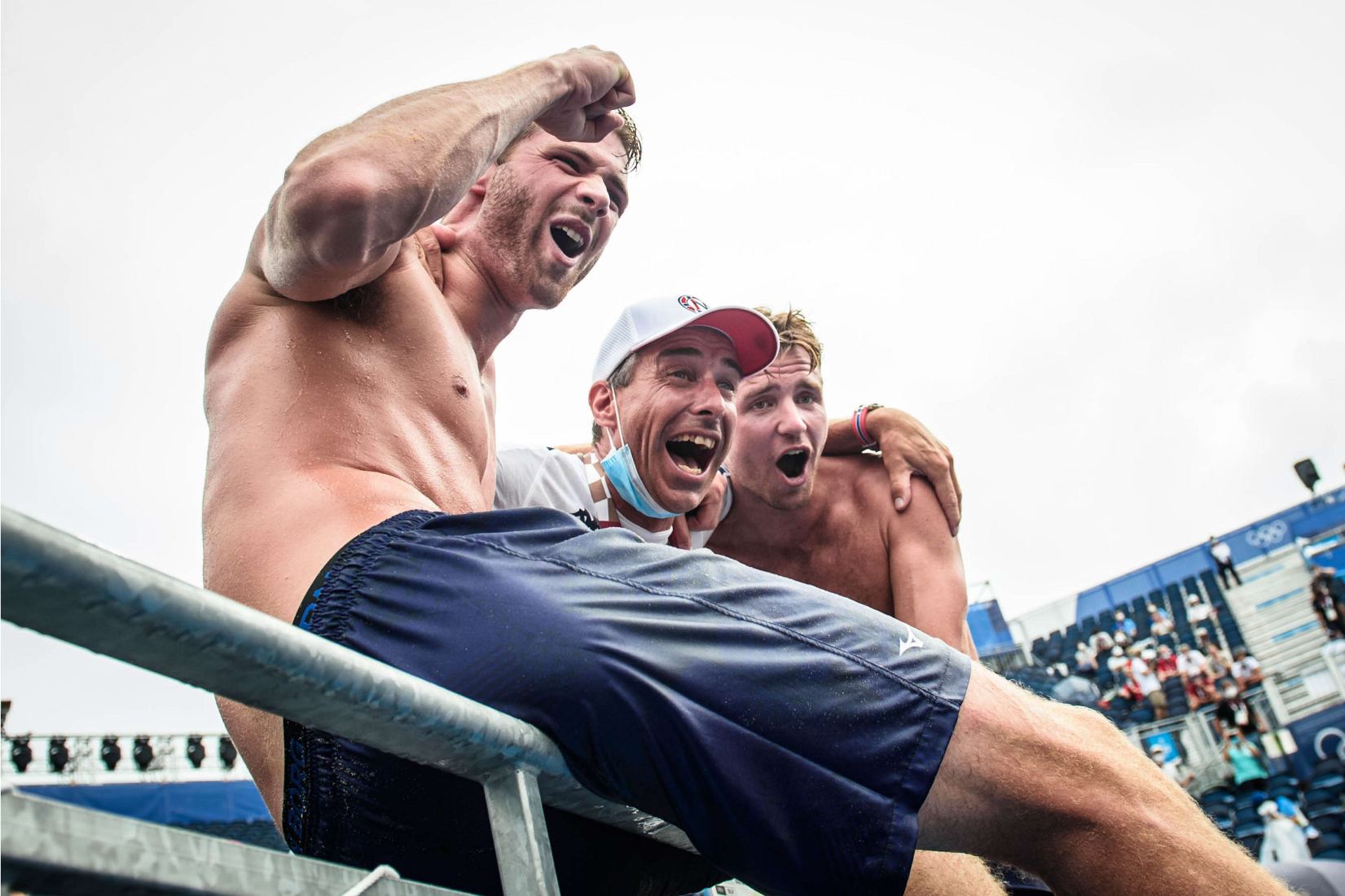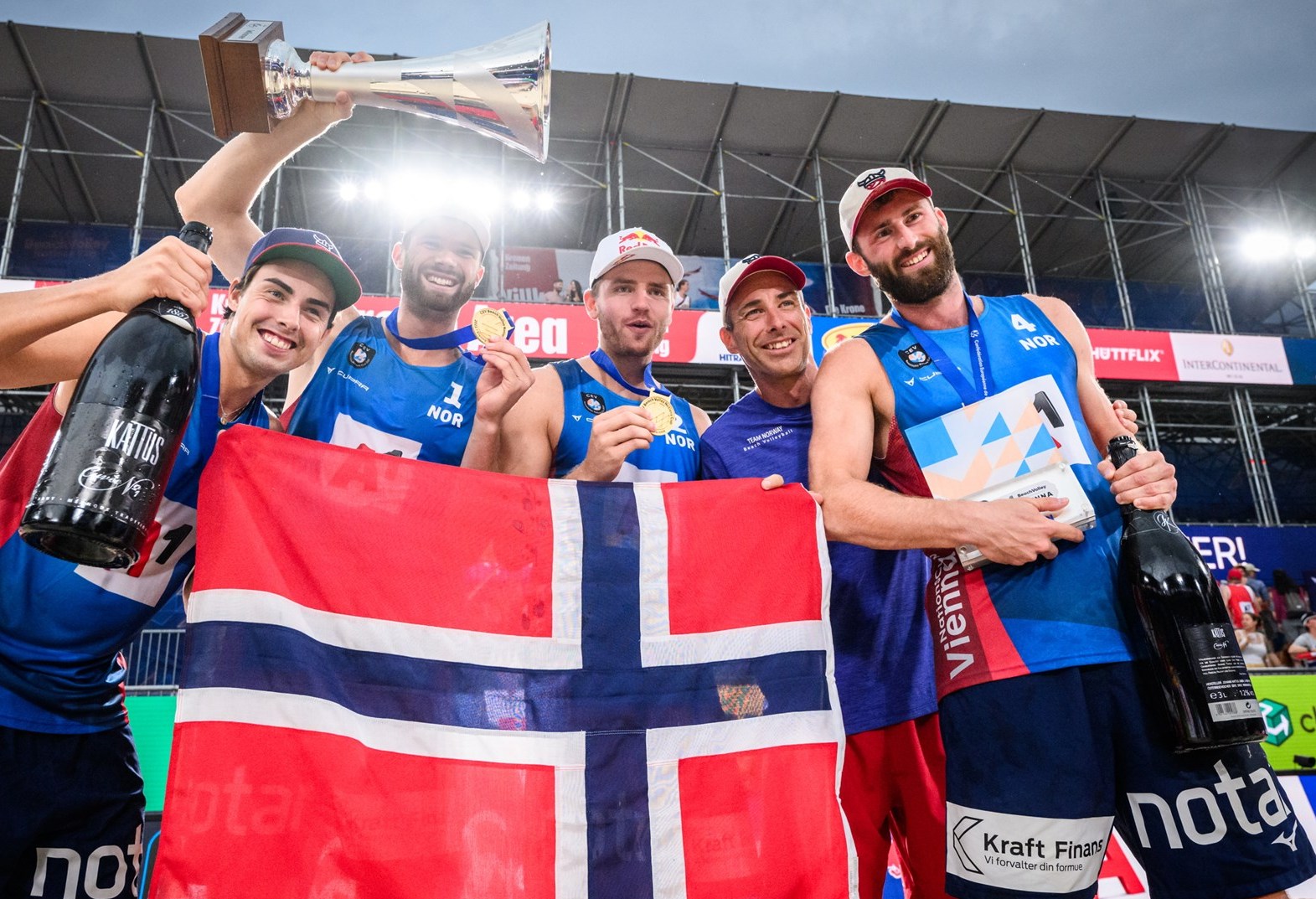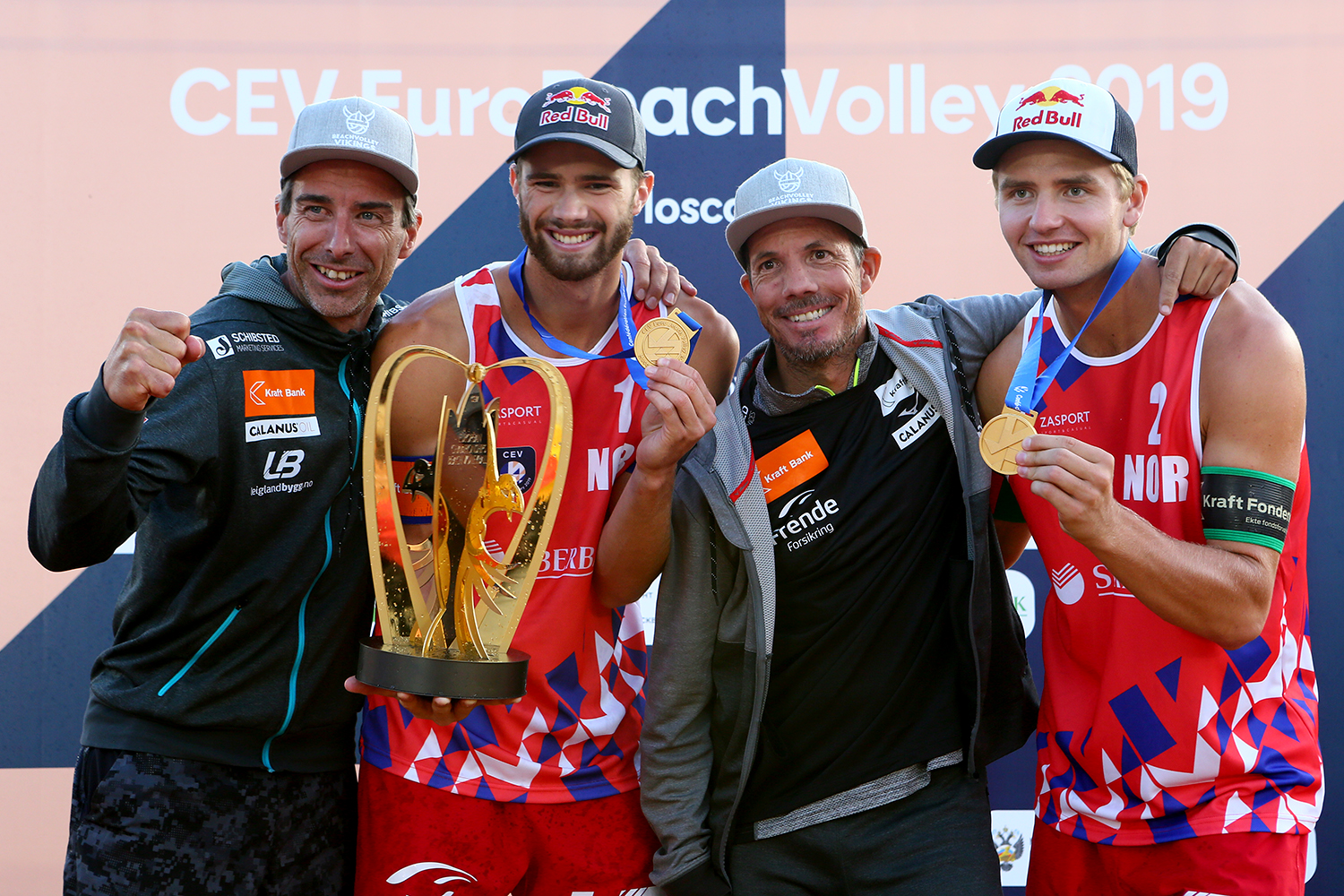There are significant differences between coaching indoor and beach volleyball, yet the coach`s role is paramount in both for a team`s success. To provide fans with insights into what it takes to be a top coach, this series features accomplished European coaches from both disciplines, seeking their perspectives on the profession.

The seventh interview features one of the world’s most successful beach volleyball coaches today, Norway’s Jetmund Berntsen. He coaches the Beachvolley Vikings, including the top men`s pair, Olympic, world, and four-time European champions Anders Mol & Christian Sorum. Last year, Berntsen also guided the Norwegian men’s national team to victory at the CEV Beachvolley Nations Cup in Vienna. Here is the continuation of his interview.
What led you to become a beach volleyball coach?
«I grew up immersed in various sports, particularly those involving a ball. We played football in the summer and volleyball in winter, alongside other activities. In my small hometown of Naustdal, we had a strong women’s team, Tambarskjelvar, with national players, including my sister Merita. Nearby Forde had the best men`s team with professional players. This exposed me to high-level volleyball from a young age. I started organized volleyball at seven and began playing beach volleyball in the summers from 1990. Later, I played on the national indoor team with Jan Kvalheim, Norway’s first World Tour winner in 1994. Around the same time, my sister married Kare Mol, my national team coach and beach volleyball partner. They pursued the Atlanta 1996 Olympics, and Kare’s journey inspired my interest in coaching. Since then, indoor and beach volleyball have been my focus and lifestyle.»
«My dream has always been to make a living from volleyball, not just as a player, but by working with people of all ages. I’ve always coached younger teams, even while playing at the top level in Norway. I love working with youngsters, which is why I spent the last five years at Toppvolley Norge. I highly recommend this school to coaches worldwide; its culture, knowledge, atmosphere, and people are incredibly energizing.»

Share the remarkable story of the Beachvolley Vikings.
«Kare and I had children at a similar time and spent a lot of time together. I could observe him closely, discuss ideas, and experiment in my early coaching career. I attended the World Tour in Stavanger every year from 1999 to 2014. I remember Anders (Mol) telling us during the 2009 World Championship there, `I will be the youngest player ever to play at a World Tour Grand Slam event.` He was twelve. In 2014, he and Mathias (Berntsen) qualified for the main draw in Stavanger at just 16 and 18, becoming the youngest team ever to play a Grand Slam. They also qualified for the Youth Olympics in Nanjing and won the U20 European Championship in Larnaca the following year (2015).»
«The journey had begun. We had a pool of talented young players and experienced coaches. The senior national team wasn`t performing as before and didn`t qualify for the 2016 Olympics. Our young players graduated from high school (ToppVolley Norge), and we needed to give them the best possible program. So, we started the Beachvolley Vikings together, knowing this group was special. We began with three players: Anders, Mathias, and Christian (Sorum). Our fourth player, Hendrik, finished school and his indoor season in Hawaii later. The main goal was to qualify for the Tokyo 2020 Olympics.»
«In the first two years (2016 and 2017), we tested various combinations to find the optimal pairing. It was challenging because everyone performed well. We won medals at youth championships with different teams and qualified for elite World Tour events with various combinations. Selecting the future core team wasn`t easy. Ultimately, we concluded that Anders and Christian were the best fit together. They had incredible chemistry and shared an understanding of the game. Years later, their achievements are astonishing – not just the results, but how they’ve elevated beach volleyball to a new level.»
«Winning almost everything from 2018 to 2022 has been incredible, but I still treasure our first World Tour victory at the Gstaad five-star in 2018 the most. A small team from Norway, with two players and a coach, defeating the global elite. I think I kissed Nika Fleiss, who was sitting next to me, after winning the match point! It was an `out-of-body experience`! And I won`t forget Christian’s defense on that match point for Gibb & Crabb in the semifinal of the same tournament. Even their coach, Rich Lambourne, thought they had won! It was a deeply emotional tournament and the moment we started believing we could win everything.»

What was it like coaching a team to heights like Olympic, world, and European titles? How has this success impacted your recognition in Norway? Anders and Christian are famous, but are you?
«Being part of a team that performs and wins at such a high level is always fantastic. The past four years have been an incredible journey for all the Vikings and staff. We are well-known within the Norwegian volleyball community, and the Vikings` results have sparked broader interest. Unfortunately, in Norway, winter sports and football dominate media coverage. It’s a deeply ingrained tradition that`s hard to change. Even with top-10 athletes in sports like tennis and golf, cross-country skiers and ski jumpers remain the ‘super heroes’. But we work hard daily to grow the sport, hoping things might change someday…»
Unlike indoor volleyball, coaching during beach volleyball matches is generally prohibited. What`s the reasoning, and would you change this rule?
«I don`t know the specific reasoning behind the rule, and personally, I don`t find it important to change it. Many coaches talk too much, which doesn`t always improve the teams or the game quality. We`ve always considered beach volleyball a technical and mental sport; tactics alone don`t win matches. One aspect I particularly love about beach volleyball is the momentum shifts during a game and how players handle them. That’s the sport`s fascination and beauty for me. I anticipate coaches will have more involvement in the coming years. Let`s keep it limited to time-outs and between sets. That could work well.»
Given this rule, beach volleyball coaches are rarely in the media spotlight and largely unknown to the public. Is this beneficial or detrimental to the sport?
«It`s hard to say. Perhaps having coaches on the sideline would make it look more professional? This discussion has been ongoing for years, with most countries favoring greater coach inclusion. Coaching during time-outs and between sets could offer fans and media more information. It might be good for the sport, but I believe it would also take something away from the current dynamic. However, as I mentioned, if coaching is limited to time-outs and between sets, it could be a good compromise.»
